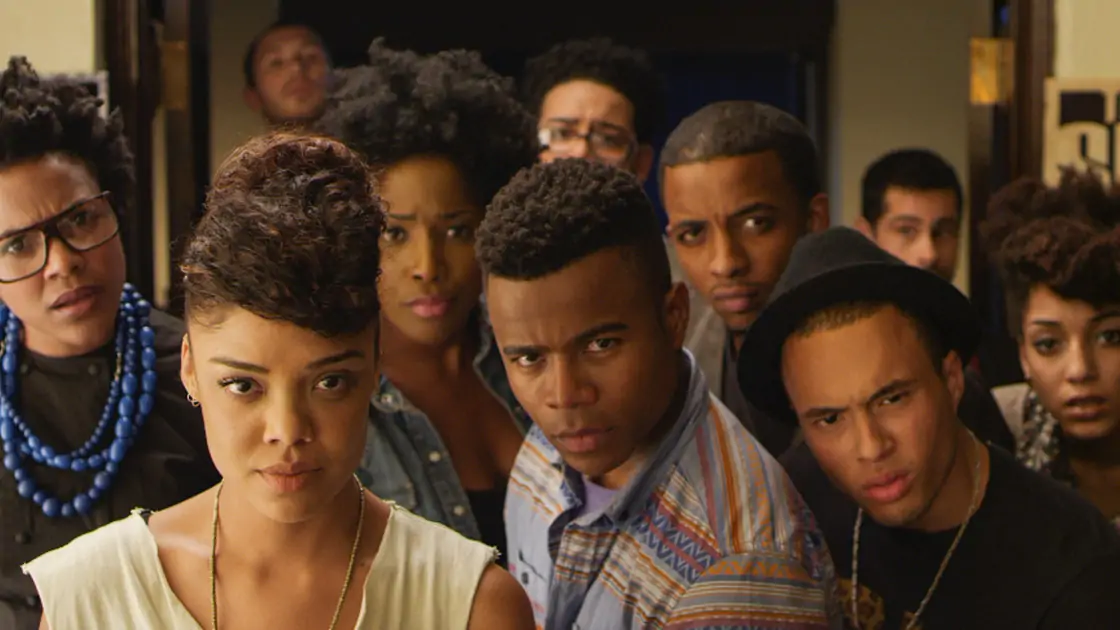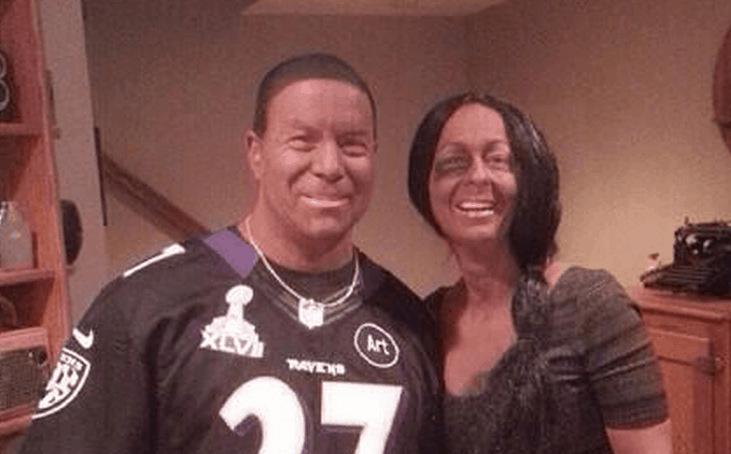
It’s impossible to watch Dear White People without interpreting the film through the lens of personal experience, along with the current state of the nation.
It takes a unique movie to force the viewer to really connect what they saw on screen to the world outside the movie theater. If you Google the recent WWII epic Fury, you won’t find online chatter relating the Brad Pitt blockbuster to the behavior of American soldiers in Afghanistan. Nor has Gone Girl really elevated domestic violence to a hot button topic in the news cycle.
Dear White People is hilarious, thought-provoking and uncomfortable. The degree to which the first two traits come through and the latter fades depends on the viewer’s ability to accept the narrative as a coming-of-age tale about college students trying to find their authentic voices in the middle of a racially charged Ivy League institution, and not commentary about this summer’s shooting of Mike Brown in Ferguson, Missouri, or the protests that followed.
The groundwork for the story began in 2006, when writer/director Justin Simien began to write out his feelings about being a black student at the predominantly white Chapman University, a Christian college in Southern California. In 2012, Simeon threw his tax return into creating a concept trailer, and managed to raise over $40,000 via the crowdfunding site Indiegogo, which eventually led to buzz at this year’s Sundance Festival.
Set on the campus of the fictional Winchester University, the opening scenes show the aftermath of a “black themed” Halloween party, complete with every negative stereotype about African-American culture from the past 20 years. In truly cringe-worthy moments, white students don Lil Wayne and Barack Obama masks, Tupac’s signature reverse bandana, white snacking on fried chicken and watermelon, and guzzling “purple drank” as hip-hop blasts in the background.
The camera then jumps five weeks back, introducing the audience to the chief protagonist Sam White, a biracial sophomore who hosts a show called “Dear White People” on Winchester’s college radio station. In the style of Malcom X, Sam uses her airshift to lay as much guilt as possible on the white student population. “Dear white people,” she says in a silky smooth movie trailer voice, “the number of black friends required to not seem racist has just been raised to two.”
The plot gets going when Sam is elected president of a historically black residence hall, defeating the popular Troy Fairbanks, an African American pre-law student who seemingly spends all his time studying and grooming his reputation with students of every race. Troy lives under the thumb of his father, Winchester’s Dean of Students (24’s Dennis Haystert), who dictates every facet of Troy’s life, from who he will date to what clubs he joins.
Sam and Troy embody an age-old battle between established academia and the young firebrand mindset that college students are attracted to. Surrounding them are a cast of complex and relatable characters, from Kurt Fletcher, the spoiled son of the college President, to Lionel, a shy black student mercilessly picked on by nearly everyone, who “loves Robert Alton movies and listens to Mumford & Sons.” In one of the most poignant moments of the film, Troy asks Lionel “if it’s harder to be too black for the white kids, or too white for the black kids.” Lionel looks up and replies “both.”
While the film is most obviously about race and higher education, it also stands alone as a touching story about navigating the turbulent waters of young adulthood, and answering the questions “who am I?” “What will my life be about?” and “who will I align myself with.” Simien does an excellent job of depicting college students as they often are: brave and outspoken in front of their peers, timid and unsure behind closed doors.
Simien, who claims to be more inspired by Woody Allen and Swedish documentarian Ingmar Bergman than Spike Lee, creates a lush world to carry the story, complete with a classical score and beautiful, interesting camera shots, a welcome breath of fresh air in 2014, which has been filled with unimaginative sequels, prequels and reboots.
The story stumbles a bit when every character becomes a little too selfish and egotistical to be believable, and the twist in the final act is a bit thin. But you can’t help but leave the theater thinking about how far we’ve really come as a nation on issues of race, and what it takes to change established institutions that still quietly conceal racism just below the surface.
But, if there’s a central thesis in this indie project, it’s that the human heart can change in unexpected ways, even when longstanding organizations or the modern media machines will not.
The way that Simien portrays this truth is unexpected, and enough fun to make you feel like you’re witnessing an organic story, rather than being force-fed someone’s opinion of race relations in America.
Rated R for language, brief sexuality and marijuana use.






















